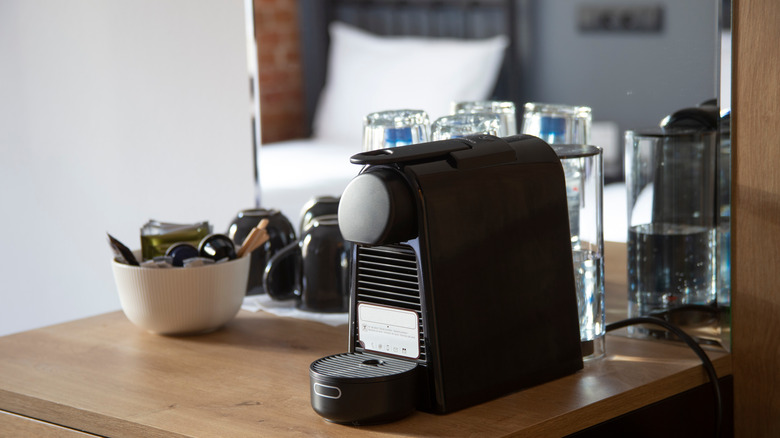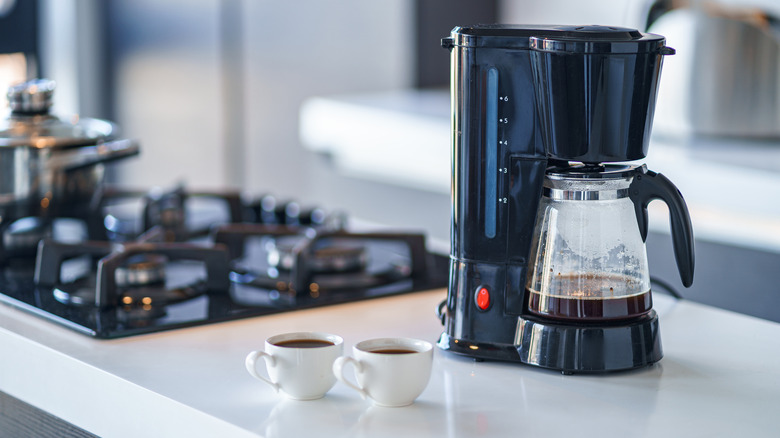Why You Should Think Twice Before Using The Coffee Maker In Your Hotel Room
For many coffee drinkers, staying in a hotel room with a coffee maker is a necessity — but is it actually safe to use it? According to a study from the University of Valencia, hotel and communal coffee makers are often riddled with germs and bacteria (via Travel + Leisure). After sampling and studying 10 different Nespresso machines, researchers found multiple strains of bacteria living inside the machines, some of which can be linked to serious infections and diseases.
"Our results show, for the first time, that coffee leach from standard capsule machines is a rich substrate for bacterial growth," the study reported. "The presence of bacterial genera with pathogenic properties and the fast recovery of the communities after rinsing the capsule container, strongly suggest the need for frequent maintenance of the capsule container of these machines." Since in-room coffee makers aren't usually sanitized by housekeeping in between guests due to the amount of time it would take, you will most likely have to clean the machine yourself if you want to avoid ingesting any potentially harmful bacteria (via Best of Life).
How to clean a hotel coffee maker
Despite the myth, hot water alone is not strong enough to kill the germs and bacteria hiding in coffee makers. If you want to properly disinfect your hotel coffee maker, you actually need to use vinegar (via HuffPost). Believe it or not, vinegar decalcifies the mineral buildup in coffee makers and removes any mold and bacteria. If you have a traditional coffee maker, you can clean it by washing all the removable parts first with soap and warm water.
"The carafe, lid, and filter basket should be cleaned daily with warm, sudsy water," Carolyn Forté, the director of the Home Appliances and Cleaning Products Lab at the Good Housekeeping Research Institute, told HuffPost. "A coffee maker that's used daily should be decalcified about once per month in hard water areas and every two to three months in soft water areas." According to Forté, you can also clean pod-based machines the same way, although you might want to look out for their hard-to-reach crevices, which may be harboring germs and bacteria.


